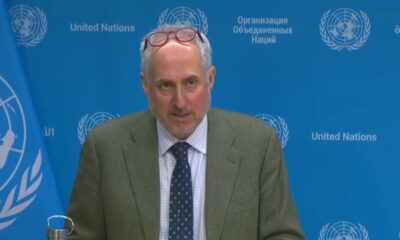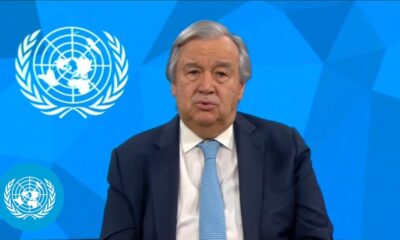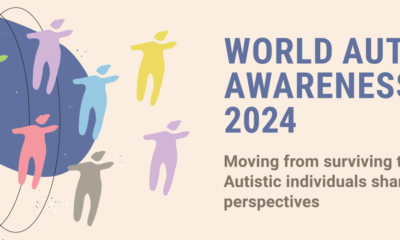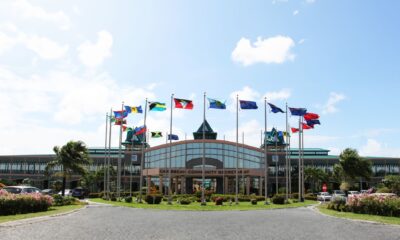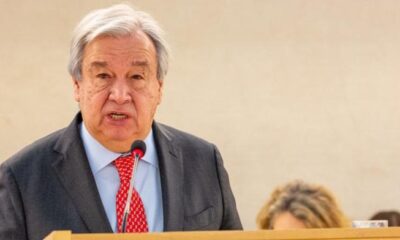New York, 22 April 2024
Excellencies, ladies and gentlemen,
I thank ECOSOC for convening this forum on a topic that is essential to development and the better world we all seek — financing.
Financing is the fuel of development.
Yet many developing countries are running on empty.
This is creating a sustainable development crisis.
A crisis of lingering poverty and rising inequality.
A crisis of hunger, lack of education and shattered infrastructure.
A crisis of climate catastrophe and shocks that are becoming more frequent and acute.
And a crisis that, if left unchecked, will undermine stability, prosperity and peace for decades to come.
Crisis after crisis, challenge after challenge, all tied together by a common thread.
Lack of financing.
Many developing countries are simply unable to make the investments they need in sustainable development, and the systems and services their people require.
And when they turn to the global financial system for help, they find that it is unable to provide a global safety net to shield them from shocks.
They find a system incapable of helping them forge stability or sustainability.
They find a system that they had no hand in creating, no voice in shaping — and that remains unresponsive to their needs.
My friends, they find a system that is broken.
The result is plain to see.
The Sustainable Development Goals are hanging by a thread — and with them, the hopes and dreams of billions of people around the world.
The world faces an annual financing gap of around $4 trillion to reach the SDGs — a sharp rise from the $2.5-trillion gap one year before the COVID-19 pandemic.
This growing financing gap is matched by a growing financing divide — between those countries that can access financing at affordable rates, and those that cannot.
This is no longer a question of “haves” and “have nots.”
This is a question of who has access to finance when they need it — and who does not.
This is a question of justice.
Look at the global financial system’s handling of debt.
Many developing countries are being crushed under a steamroller of debt.
Four out of every 10 people worldwide live in countries where governments spend more on interest payments than on education or health.
Annual debt service payments in the world’s poorest countries are 50 per cent higher than they were just three years ago.
In sub-Saharan Africa, debt-servicing consumed nearly half of all government revenue in 2023.
In country after country, development gains are quickly erased by relentless crises, with debt service payments impeding critical social spending and investments in the SDGs.
Money is flowing in the wrong direction — from the countries who need it to the countries who don’t.
When it comes to debt, developing countries are climbing a ladder planted in quicksand.
Excellencies,
A growing economy is the best way to reduce debt burdens and raise domestic revenue for key investments.
We need a surge of investment to bridge the financing gap and give developing countries a fighting chance to build better lives for their people.
We must continue pushing for an SDG Stimulus of $500 billion annually in affordable long-term finance for developing countries.
The Stimulus was welcomed by world leaders at the SDG Summit and in the G20 New Delhi Leaders’ Declaration.
Now it’s time to move from words to action and deliver affordable, long-term financing at scale.
First — developed countries need to step-up, led by the G20.
Discussions on general capital increases for Multilateral Development Banks should start now.
Meanwhile, donors must meet their official development assistance commitments.
In 2022, only four countries met or exceeded the agreed target of 0.7% of Gross National Income.
Official development assistance has risen on paper, but it is increasingly spent within donor countries, leaving developing countries without the resources they need.
I call on all donor countries to meet their targets, and get this financing flowing.
Second — we need Multilateral Development Banks to make better use of the resources they can already access, at no additional cost to shareholders.
This includes finding ways for MDBs, central banks and credit rating agencies to greenlight ways to stretch Banks’ balance sheets, leveraging the vast sums of callable capital that the shareholder countries of MDBs have at the ready, sitting in central banks.
It means deploying innovative financing systems — for example, hybrid capital bonds that increase lending capacity and attract private capital.
And MDBs must readjust their business models to better leverage private finance at a reasonable cost for developing countries.
Third — we need bold action to ease the debt distress.
Any new financing should be used for productive investments and sustainable development — not to service unsustainable and unaffordable debt.
And the debt-restructuring systems and mechanisms in place need to be strengthened.
The Debt Service Suspension Initiative and the G20 Common Framework for Debt Treatments have not delivered on their promise.
The Debt Service Suspension Initiative was too limited in scope and duration, expiring just as interest rates skyrocketed.
Debt repayment pauses must be considered for countries facing liquidity crises.
And for those countries bearing the weight of unsustainable debt, it’s time to revamp the debt resolution architecture to provide deep relief that avoids repeat crises.
Regardless of intent and efforts, the Common Framework has failed to provide this.
Nor has it served many of the countries that face the greatest unresolved debt problems.
It’s time for change.
And fourth — we need to increase developing countries’ representation across the system and every decision that is made.
This July is the 80th anniversary of the Bretton Woods Conference, which ushered in today’s international financial architecture.
But the countries who need these systems and institutions most were not present at their creation — a lack of representation that continues to this day.
In the name of justice, they need and deserve a seat at the table.
The Summit of the Future in September and next year’s Financing for Development Conference will be key opportunities to gather the world together to reform the global financial architecture so it serves all countries who need it.
Excellencies,
Let’s make the most of these opportunities.
Now is the time for ambition.
Now is the time for reform.
Now is the time to shape a global economic and financial system that delivers for people and planet.
I look forward to standing with you in this great effort, as we shape a more inclusive, just, peaceful, resilient, and sustainable world for present and future generations.
Thank you.
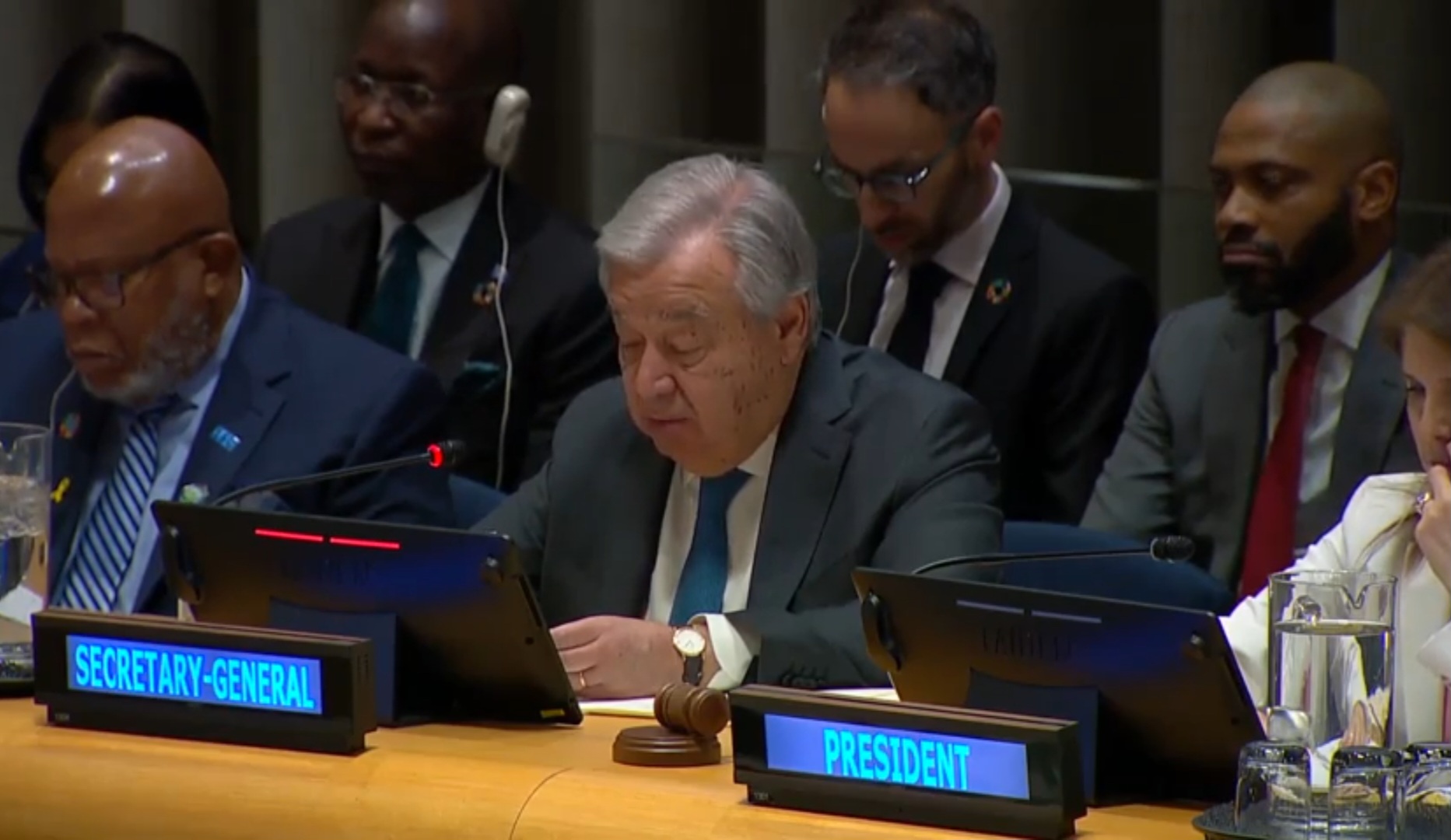
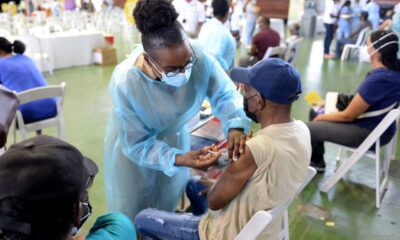
 Health1 week ago
Health1 week ago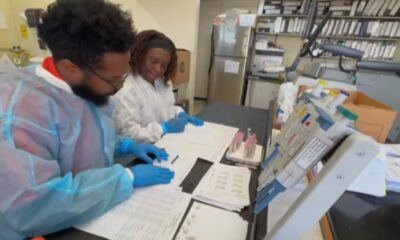
 Caribbean News6 days ago
Caribbean News6 days ago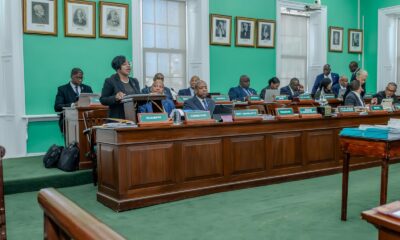
 TCI News6 days ago
TCI News6 days ago
 TCI News6 days ago
TCI News6 days ago
 TCI News4 days ago
TCI News4 days ago
 Caribbean News6 days ago
Caribbean News6 days ago
 world news1 week ago
world news1 week ago
 Bahamas News6 days ago
Bahamas News6 days ago
